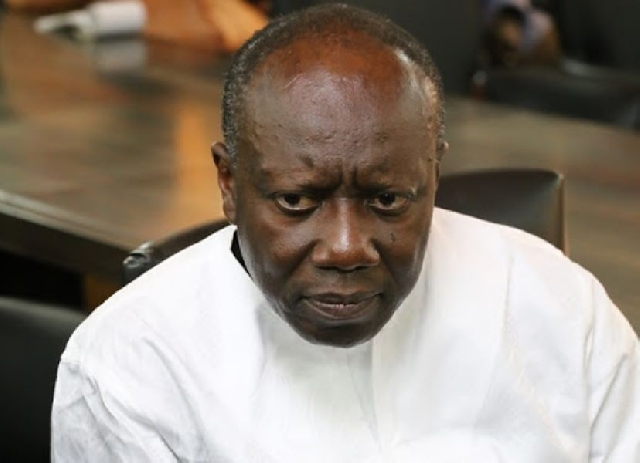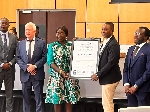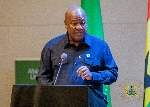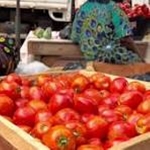It’s not too late to come clean on US$2bn Sinohydro deal terms – NRGI Report
 Finance Minister, Ken Ofori Atta
Finance Minister, Ken Ofori Atta
Controversy surrounds both Ghana and Guinea’s recent loan deals, involving the exchange of bauxite with Chinese companies for financing of infrastructure projects, researchers from the Natural Resource Governance Institute (NRGI) based in London have said.
The researchers have been considering 52 resource-backed loans made between 2004 and 2018, with a total value of more than US$164 billion; 30 of them, with a combined value of US$66 billion, were made to sub-Saharan African countries.
Per the loan deal, the government of Ghana is obligated to repay a US$2 billion loan it agreed with Chinese state company Sinohydro in 2018. The repayment schedule requires a rapid ramp-up of bauxite production and refining, which the International Monetary Fund (IMF) has warned may not be possible and, therefore, could lead to loss of collateral.
Guinea also signed a US$20 billion loan in 2017, equivalent to 200 per cent of the country’s GDP. Bauxite production, designated to repay the loan, has already started, but there is little publicly-available information on how the country will repay such an enormous loan and under what conditions.
Silas Olan’g, NRGI Africa co-director, said: “The deals may already have been signed in Ghana and Guinea, but it’s not too late to come clean about the terms of the loan and to involve the communities who will be affected by the mining in meaningful discussions.”
Crippling levels of debt
The report details how excessive debt has landed many African countries in economic crisis.
It follows a warning by the World Bank about crisis-level debt in emerging and developing nations, and identifies four African countries where resource-backed loans have contributed significantly to severe debt problems: Angola, Chad, Republic of Congo and South Sudan.
As oil prices dropped in 2014, Congo’s debt spiraled from 70% to 120% of GDP. The government only revealed to the public that it had taken these loans once it had difficulties servicing them. The country now owes more than $9.5 billion in public debt and the IMF is withholding loans while the Republic of Congo is in dispute with commodity traders over the repayment.
Also, the latest IMF report for the DRC stated that the liabilities from the Sicomines project represented almost 40 per cent of the country’s total external debt.
Corruption risks and poor governance
Of the eleven sub-Saharan African countries that took out resource-backed loans, eight received poor or failing scores on the Resource Governance Index, which include among its assessments measures of transparency and accountability of countries’ resource sectors.
Angola, which took out the largest amounts of resource-backed loans in Africa, is currently mired in a large-scale corruption case involving its state-owned oil company, Sonangol.
The Republic of Congo was also embroiled in a major scandal involving representatives of a commodities trading giant bribing public officials to gain access to its oil markets.
Potential for improvement
The report is not wholly critical of resource-backed loans.
The authors highlighted how borrowing countries obtain cheaper financing through the loans and can use them to generate economic returns that in the long-term exceed their financing costs.
The report also found out that countries have successfully renegotiated for improved loan terms.
However, given the largely negative experiences documented in the report, NRGI advised government officials to be cautious in agreeing to resource-backed loans and to institute safeguarding measures.
Source: classfmonline.com
Trending Business

Ghana Link secures ISO 27001 certification for data centre, strengthening trade security
14:43
Bank of Ghana updates rules on wilful defaulters
10:52
Blue Gold Limited withdraws legal suits in Ghana, focuses on international arbitration
09:54
Energy Commission reviews draft EV charging infrastructure development regulations
09:43
Women in Kpone Katamanso empowered with vocational skills and business training
14:00
Mahama sets ambitious manufacturing target: 15% of GDP and 500,000 industrial jobs by 2030
02:48
GIPC CEO rallies investors to back oil palm expansion at Birim oil mills
18:37
Tomato prices soar in Ashanti following deadly attack on Ghanaian traders in Burkina Faso
15:50
Ghana's current account posts a surplus of US$9.1 billion by end-December 2025 as compared to US$1.5 billion in 2024
14:20
OPDAG praises government's crackdown on illegal vegetable oil imports
12:55



